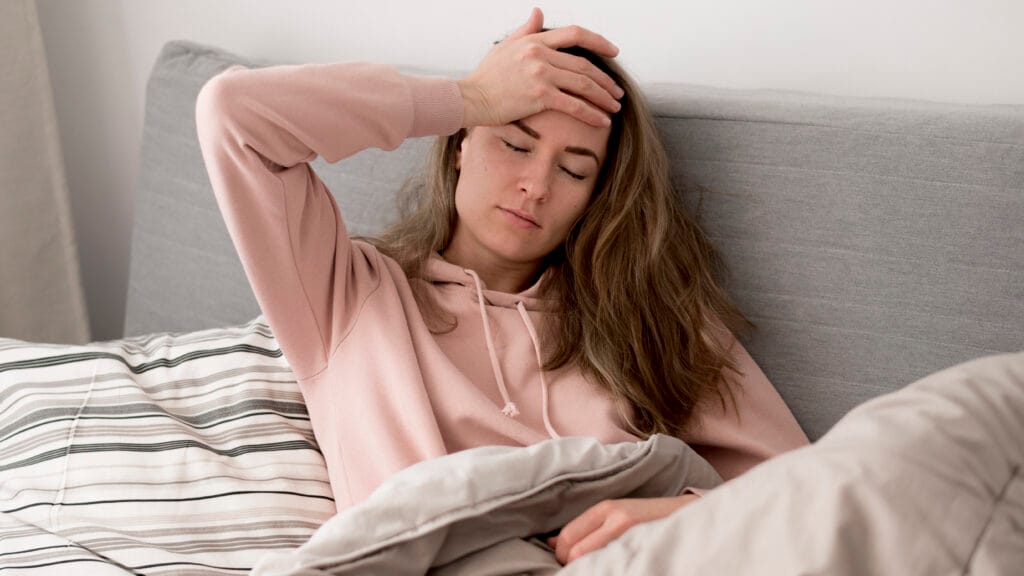Content
ToggleStrategies for Better Rest
Sleep is an essential component of our overall health and well-being. However, for many people, achieving a restful night’s sleep can be a significant challenge. If you find yourself tossing and turning at night, it’s important to explore various strategies to improve your sleep quality.
In this article, we will discuss practical approaches including the benefits of meditation, the impact of screen time, the use of sleep medications like zolpidem and clonazepam, and the risks associated with self-medication.
Understanding Sleep Difficulties
The Importance of Quality Sleep
Quality sleep is critical for physical health, mental clarity, and emotional stability. During sleep, the body undergoes processes that help repair tissues, consolidate memories, and regulate hormones. Lack of sleep can lead to various health issues, including:
- Increased stress levels
- Impaired cognitive function
- Higher risk of chronic diseases (such as obesity and diabetes)
- Mood disorders, including anxiety and depression
If these issues resonate with you, it’s time to consider what changes can be made to improve your sleep.
Common Causes of Sleep Problems
Sleep difficulties can arise from various factors, including:
- Stress and Anxiety: Overwhelming thoughts can prevent relaxation.
- Poor Sleep Hygiene: Irregular sleep schedules and an unsuitable sleeping environment can affect the quality of sleep.
- Screen Time: The blue light emitted by phones and tablets can disrupt the body’s natural circadian rhythm.
- Sleep Disorders: Conditions such as insomnia or sleep apnea may require professional assessment.
Effective Strategies for Better Sleep
1. Practicing Meditation
The Benefits of Meditation for Sleep
Meditation is a powerful tool that can help calm the mind and body, making it easier to fall asleep. Engaging in meditation can reduce stress, promote relaxation, and enhance overall well-being. Here’s how to incorporate meditation into your routine:
- Mindfulness Meditation: Focus on your breath and acknowledge your thoughts without judgment. This practice encourages relaxation, reducing anxiety and distractions that can impede sleep.
- Guided Meditations: Use apps or online resources that provide guided meditations designed specifically for sleep.
- Body Scan: This technique involves mentally scanning your body from head to toe, releasing tension in each area, which can signal to your body that it’s time to sleep.
How to Start Meditating
To begin incorporating meditation into your evening routine, consider the following tips:
- Set Aside Time: Allocate 10-20 minutes for meditation before bed.
- Create a Calm Environment: Find a quiet, comfortable space where you won’t be disturbed.
- Stay Consistent: Practice meditation regularly to develop the habit and enhance its effectiveness over time.
2. Limiting Screen Time Before Bed
The Importance of Putting Down Your Phone
Studies indicate that the blue light emitted by screens can interfere with the production of melatonin, the hormone responsible for regulating sleep. To improve sleep quality, consider implementing the following strategies:
- Stop Using Your Phone 2 Hours Before Bed: This crucial period allows your body to wind down and promote natural melatonin release.
- Establish a Nightly Routine: Instead of reaching for your device, engage in relaxing activities, such as reading a book or enjoying a warm bath.
- Use Blue Light Filters: If you must use screens before bed, consider employing blue light-blocking glasses or apps that filter harmful light.
3. Sleep Medications: Pros and Cons
Overview of Sleep Medications
While lifestyle changes can greatly improve sleep quality for many individuals, some people may require additional support through medications. Two common prescriptions for sleep difficulties are zolpidem (Ambien) and clonazepam (Klonopin).
Zolpidem: Uses and Considerations
Zolpidem is primarily prescribed for short-term treatment of insomnia. It works by enhancing the inhibitory neurotransmitter gamma-aminobutyric acid (GABA), promoting relaxation and sleep.
Positive Points:
- Rapid onset: Zolpidem works quickly, allowing users to fall asleep within 30 minutes.
- Short-term solution: It can help individuals who are experiencing temporary sleep disturbances.
Negative Points:
- Dependency Risk: Prolonged use can lead to physical or psychological dependence.
- Withdrawal Effects: Discontinuing use after extended periods can result in rebound insomnia.
- Side Effects: Zolpidem can cause side effects, including dizziness, daytime drowsiness, and unusual behavior (e.g., sleepwalking).
Clonazepam: Uses and Considerations
Clonazepam is a benzodiazepine used to treat anxiety and panic disorders but is sometimes prescribed for sleep issues.
Positive Points:
- Anxiolytic Effects: Clonazepam can help not only with sleep but also with anxiety-related issues that may be disrupting sleep patterns.
Negative Points:
- Longer Half-Life: Clonazepam has a longer duration of action, which may lead to next-day drowsiness or a “hangover” effect.
- Tolerance Development: Over time, individuals may need higher doses to achieve the same sedative effects, increasing the risk of dependency.
- Withdrawal Symptoms: Stopping clonazepam abruptly can lead to withdrawal symptoms, including anxiety, seizures, and sleep disturbances.
4. The Dangers of Self-Medication
Risks of Self-Medicating with Sleep Aids
Self-medication, particularly with sleep medications, poses significant risks. Many individuals may turn to over-the-counter sleep aids or prescription medications without consulting a healthcare professional. The implications of this behavior can be serious:
- Dosing Errors: Individuals may use doses that are too high or too low, reducing effectiveness or increasing risks of side effects.
- Ignoring Underlying Conditions: Self-medicating can mask more serious sleep disorders that require professional treatment, such as sleep apnea or chronic insomnia.
- Potential Drug Interactions: When taken alongside other medications or substances, sleep aids can lead to dangerous interactions.
Seeking Professional Guidance
Anyone considering sleep medications should speak with a healthcare provider. Professional guidance ensures that medications are used safely and effectively, helping individuals to understand both the benefits and risks associated with their use.
5. Long-Term Effects of Sleep Medication Use
The Potential Impact on Sleep Quality
Although sleep medications can provide short-term relief for sleep difficulties, their long-term use can alter natural sleep patterns and lead to dependence. This reliance can cause various issues, including:
- Altered Sleep Architecture: Long-term medication use can lead to changes in the stages of sleep, which can prevent deep, restorative sleep.
- Diminished Memory and Cognitive Function: Some studies suggest that chronic use of certain sleep medications may impair cognitive function, particularly in older adults.
- Increased Anxiety: Ironically, sleep medications can sometimes exacerbate anxiety symptoms once the medication is stopped, leading to a cycle of dependency and unrest.
Implementing Healthy Sleep Strategies
Building a Healthy Sleep Environment
Creating an optimal sleep environment can significantly enhance sleep quality. Consider the following tips:
- Maintain a Comfortable Temperature: Keep the bedroom cool and comfortable for optimal sleep.
- Minimize Noise and Light: Use blackout curtains and white noise machines or earplugs to reduce disturbances.
- Invest in Quality Bedding: A comfortable mattress and pillows support better sleep and align the spine properly.
Establishing a Consistent Sleep Schedule
Going to bed and waking up at the same time each day can help regulate your internal clock, leading to improved sleep quality. This consistency enables your body to know when it’s time to wind down and prepare for rest.
Incorporating Relaxation Techniques
In addition to meditation, other relaxation techniques can be beneficial for preparing for sleep:
- Deep Breathing Exercises: Practicing deep breathing can help calm the nervous system and promote relaxation.
- Progressive Muscle Relaxation: This technique involves systematically tensing and relaxing different muscle groups to relieve tension.
- Gentle Stretching or Yoga: Simple stretching or yoga routines can release tension in the body, making it easier to relax before bed.
- The role of natural alternatives such as melatonin, chamomile tea, passionflower tea, and unguo tea.
Conclusion
Struggling to sleep can be a frustrating experience, but there are effective strategies available to improve sleep quality. Incorporating practices like meditation, reducing screen time before bed, and understanding the implications of sleep medications are important steps toward achieving better rest.
While zolpidem and clonazepam can offer short-term solutions for sleep difficulties, they come with potential risks, including dependency and cognitive impairment. It is critical to approach sleep issues holistically and seek professional guidance when needed.
Environment, establishing consistent sleep routines, and incorporating relaxation techniques into your nightly routine, individuals can enhance their sleep quality and overall well-being.
Prioritizing sleep not only boosts physical health but also improves cognitive function and emotional resilience, leading to a happier, healthier life. Talk with your medical professional before take a medicine.



